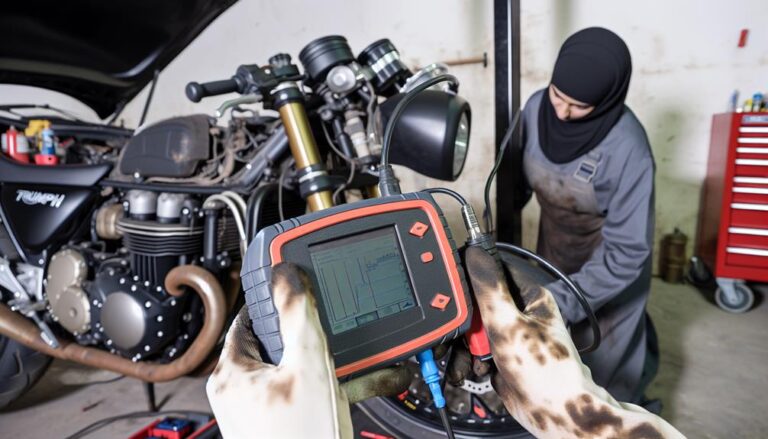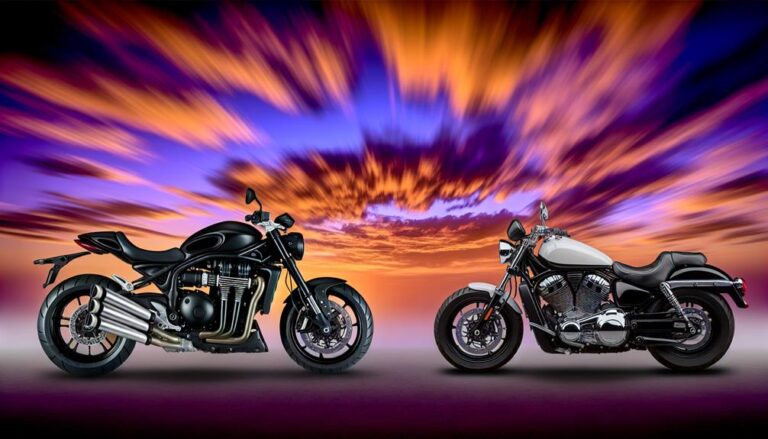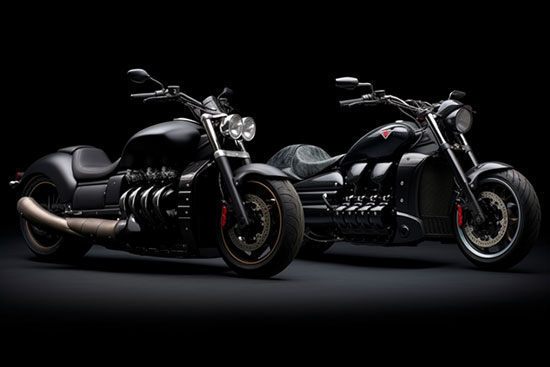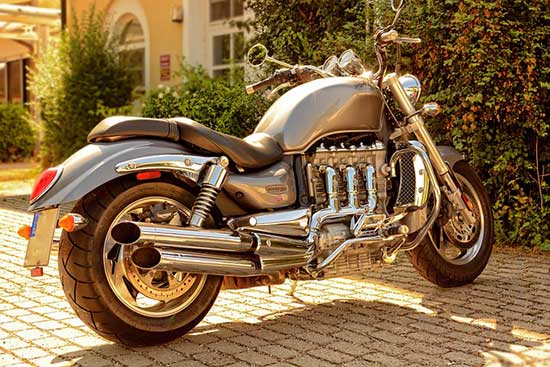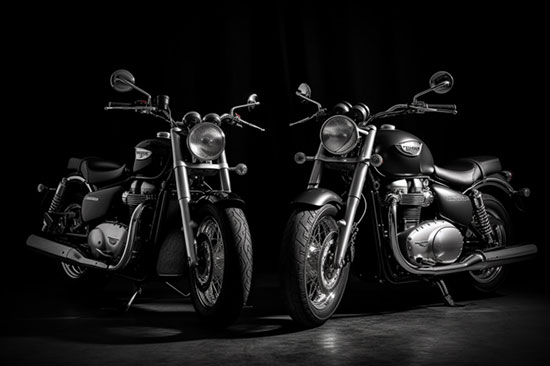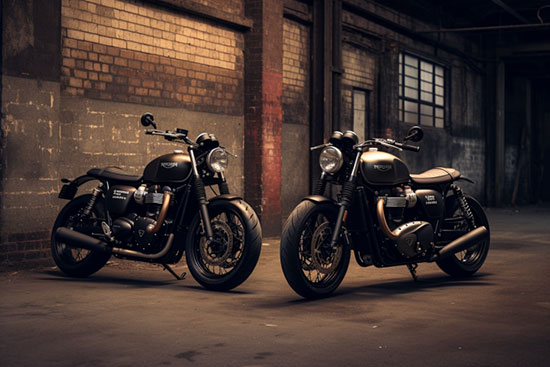When it comes to choosing a motorcycle, reliability is a crucial factor to consider. In this article, we’ll dive into the reliability of two renowned motorcycle manufacturers: BMW and Triumph.
By examining key factors such as engine quality, build quality, component durability, and maintenance, we’ll help you make an informed decision between these two prestigious brands.
Contents
Company Backgrounds
BMW Motorrad
BMW Motorrad, the motorcycle division of the German automobile giant BMW, is known for its top-of-the-line motorcycles that combine cutting-edge technology with the exceptional build quality.
With a rich history dating back to 1923, BMW Motorrad has earned a reputation for producing reliable and innovative bikes, catering to various segments, including touring, adventure, and sports.
Triumph Motorcycles
Triumph Motorcycles, a British motorcycle manufacturer, has been around since 1902. Triumph is synonymous with classic British engineering and design, and its bikes are known for their distinctive style and character.
Over the years, Triumph has built a solid reputation for creating motorcycles that offer an enjoyable riding experience and reliable performance.
Reliability Factors
Engine Quality
Both BMW and Triumph invest heavily in the research and development of their engines. BMW’s boxer engines and Triumph’s parallel-twin and triple-cylinder engines are widely recognized for their durability, smoothness, and efficiency.
While both brands have their unique engine characteristics, they share a commitment to producing reliable powerplants that can withstand the test of time.
Build Quality
BMW Motorrad is known for its meticulous attention to detail and stringent quality control processes.
The company utilizes premium materials and advanced manufacturing techniques to ensure the longevity and reliability of its motorcycles.
Triumph also takes pride in its build quality, combining traditional craftsmanship with modern technology to create bikes that are both stylish and dependable.
Component Durability
In terms of component durability, both BMW and Triumph motorcycles are equipped with high-quality parts from reputable suppliers.
These components, such as brakes, suspension, and electronics, are designed to perform reliably under various riding conditions.
Additionally, both manufacturers offer extensive warranty coverage, reflecting their confidence in the durability of their motorcycles.
Maintenance
Regular maintenance is essential for any motorcycle, and both BMW and Triumph have designed their bikes to be relatively easy to maintain.
However, BMW bikes are generally considered to have higher maintenance costs due to their more complex technology and higher-end components.
Triumph motorcycles, on the other hand, are known for their simpler mechanics and more affordable maintenance requirements.
Performance and Riding Experience
Power and Torque
BMW and Triumph motorcycles both deliver impressive power and torque figures. BMW’s bikes are known for their smooth, linear power delivery and strong low-end torque, while Triumph bikes offer a more exhilarating and engaging riding experience due
Handling
Handling is an essential aspect of the overall riding experience. BMW motorcycles are renowned for their stable and precise handling, thanks to their well-engineered chassis and advanced suspension systems.
Triumph bikes, on the other hand, are praised for their agility and responsiveness, making them enjoyable to ride on twisty roads and in urban environments.
Comfort
When it comes to comfort, BMW has a slight edge over Triumph, especially in the touring and adventure segments.
BMW bikes are designed with ergonomics and rider comfort in mind, often featuring adjustable seats, windshields, and handlebars to accommodate different riding preferences.
Triumph motorcycles also offer a comfortable riding experience, but they are generally more focused on delivering a sportier and more engaging feel.
Price and Resale Value
Pricing for BMW and Triumph motorcycles varies depending on the model and features. In general, BMW bikes are considered to be more expensive due to their premium materials, advanced technology, and overall build quality.
Triumph motorcycles, while still offering excellent quality and performance, are typically more affordable.
In terms of resale value, both brands hold up well, with BMW motorcycles often retaining a higher percentage of their original value due to their reputation for reliability and build quality.
Triumph bikes also enjoy a strong resale market, thanks to their iconic design and dedicated fan base.
| Feature | BMW Motorrad | Triumph Motorcycles |
|---|---|---|
| Engine Quality | Excellent | Excellent |
| Build Quality | Exceptional | High |
| Component Durability | High | High |
| Maintenance | More complex, higher cost | Simpler, more affordable |
| Power and Torque | Smooth, linear power delivery | Exhilarating, engaging |
| Handling | Stable and precise | Agile and responsive |
| Comfort | Superior, especially for touring | Sportier, more engaging feel |
| Price | Generally more expensive | More affordable |
| Resale Value | Higher percentage retention | Strong resale market |
Conclusion
Both BMW and Triumph motorcycles offer exceptional reliability, performance, and riding experiences.
When choosing between the two, it ultimately comes down to personal preferences and priorities. If you value cutting-edge technology, top-notch build quality, and long-distance comfort, BMW Motorrad may be the better choice for you.
However, if you’re looking for a more affordable option with a distinctive character and engaging riding experience, Triumph Motorcycles could be the way to go.

